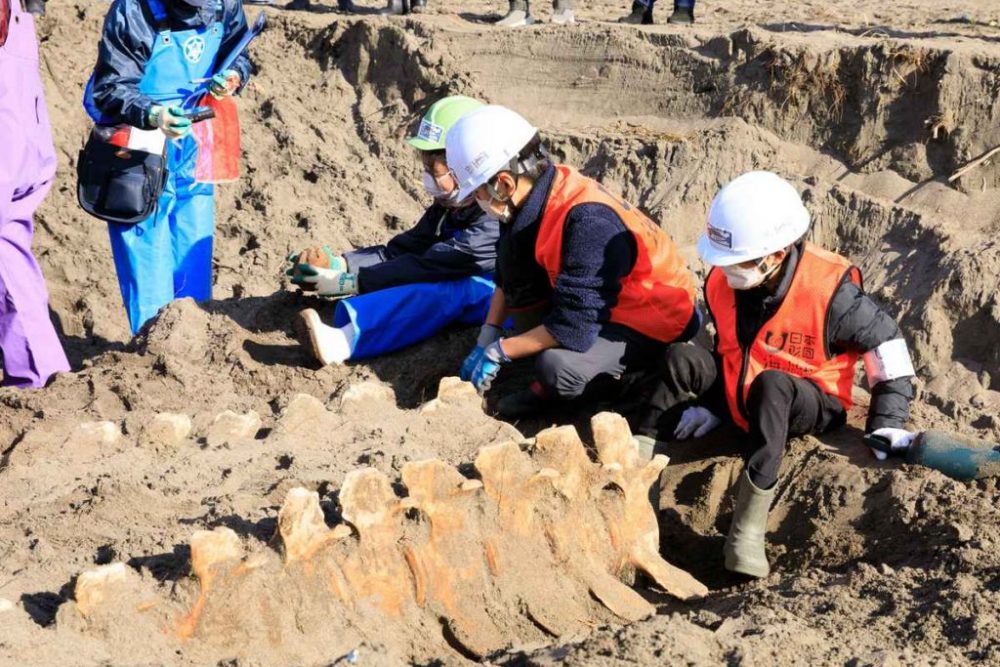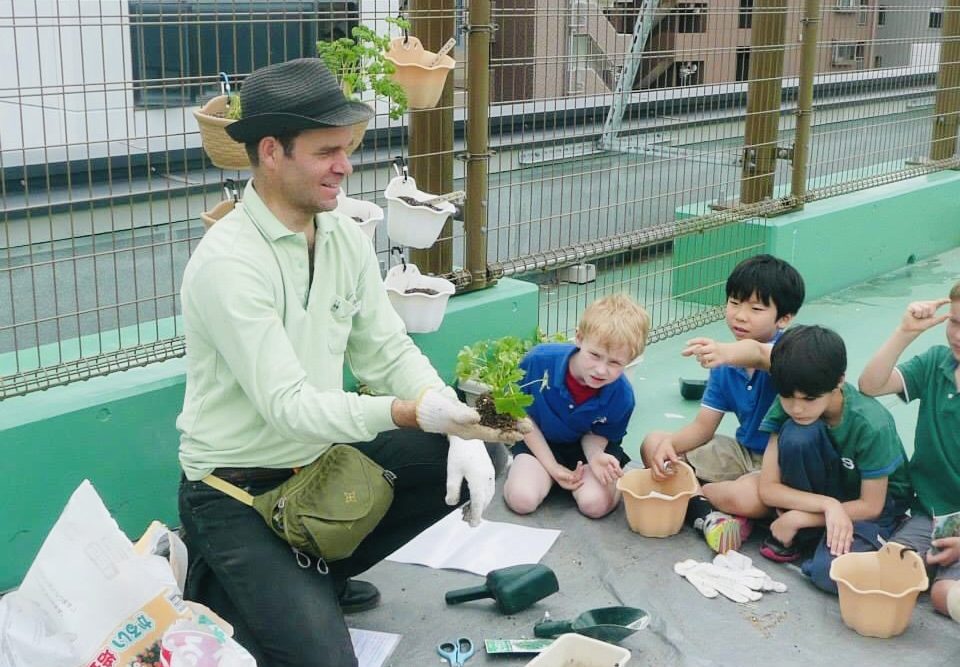Supporting Young Researchers: Hokkaido's Tsukushi Scholarship Reaches 400 Recipients
The Tsukushi Scholarship, founded by Hokkaido-based biotech company Amino Up, provides crucial support for young researchers and has now reached 400 recipients.
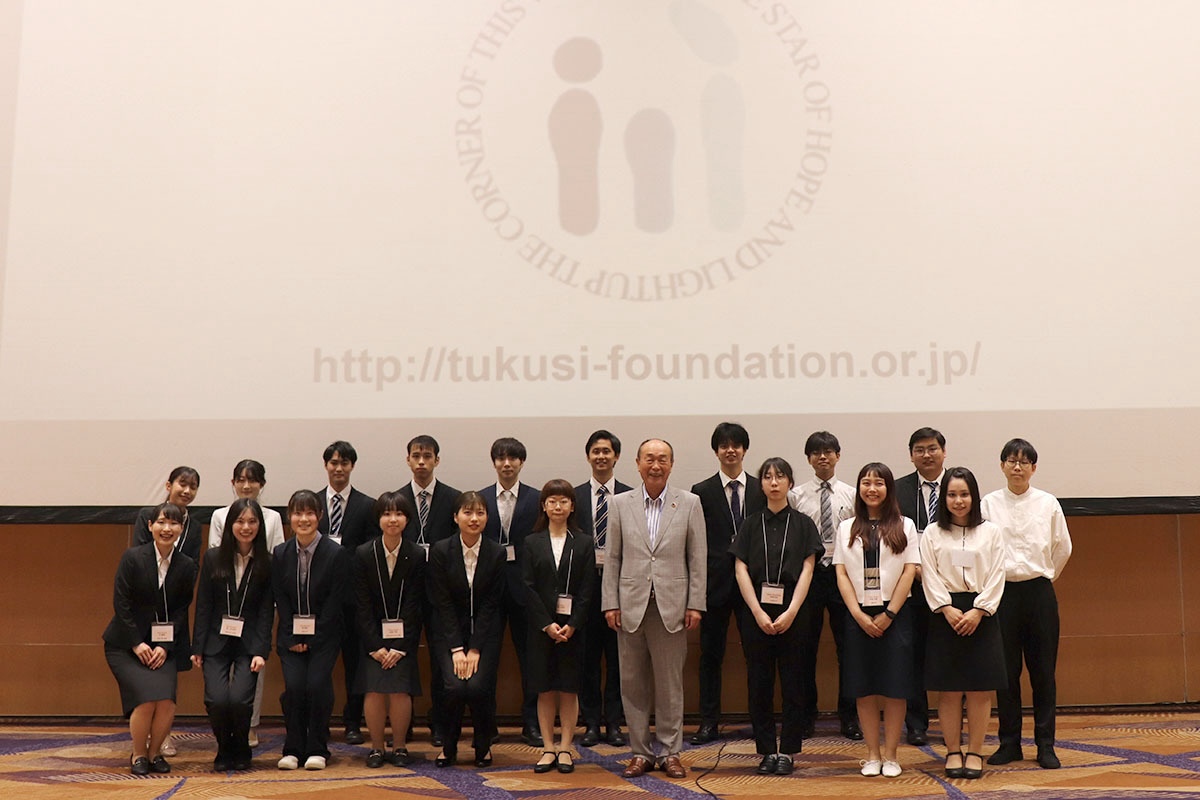
このページを 日本語 で読む
SPONSORED― A scholarship program established by Sapporo-based biotech company Amino Up provides much-needed aid to young researchers in medical and pharmaceutical studies. The program is called the Tsukushi Scholarship and Research Foundation, and funds are awarded regardless of nationality.
Current and former recipients gathered at the 32nd Annual Meeting of the International Congress on Nutrition and Integrative Medicine (ICNIM) held in Sapporo in July 2024. Interviews with the scholars revealed the challenges they face in balancing their daily life and research activities.
Balancing Family and Research
On July 19, about 100 current scholars, alumni, and stakeholders gathered in Sapporo. One of the scholars presenting was YaleGemu, a 25-year-old first-year master's student at Hokkaido Information University and a Tsukushi Scholarship recipient. He opened with a message of gratitude to the foundation. Hailing from Inner Mongolia, China, YaleGemu's research topic is "Analysis of the Relationship Between Health Literacy and Health Status of Local Residents, and Development of an App Applying Nudge Theory to Improve Health Literacy".
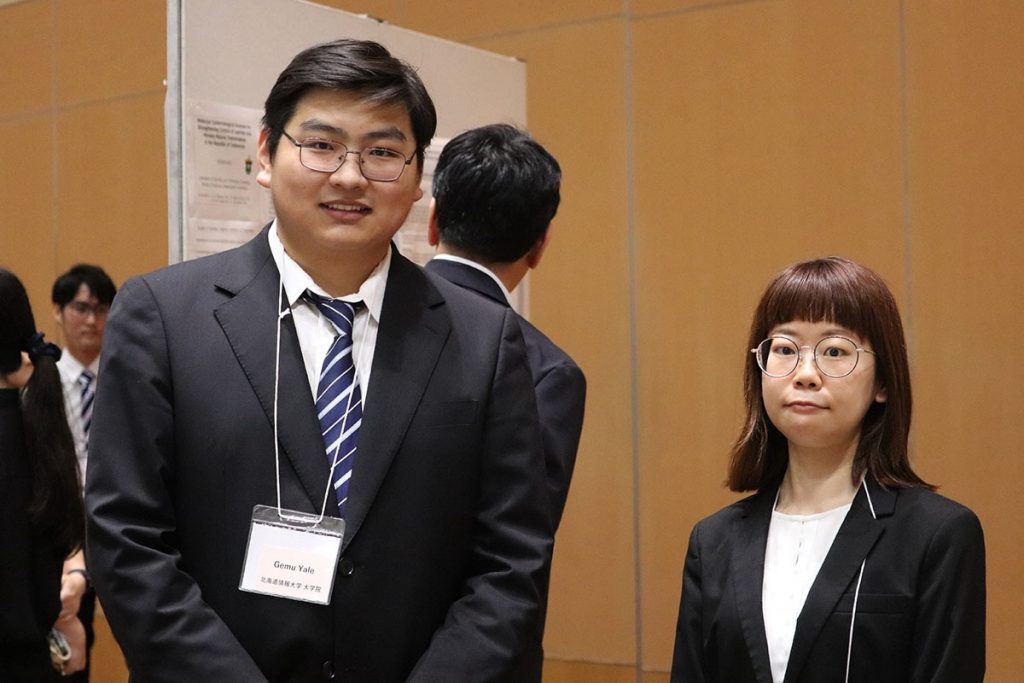
YaleGemu told the story of how he came to Japan to research how behavioral changes could prevent brucellosis. A disease that frequently occurs in Mongolia where livestock farming is prevalent, brucellosis is caused by insufficient heating of meat and milk and is linked to a lack of awareness.
YaleGemu came to Japan as a self-financed exchange student. He studied at a Japanese language school in Saitama, supported by funds from his family. Then he attended an undergraduate course at Rakuno Gakuen University in Hokkaido. After graduation, he worked at a private company for a year to save money to pay for graduate school himself.
Now married with a three-year-old son, YaleGemu explained that the scholarship allows him to reduce his part-time work from four or five days a week to just two.
Devotion to Research
Scholarship recipients also gave poster presentations on their research topics. Natsuki Ota is a 27-year-old second-year doctoral student at Hokkaido University of Science's Faculty of Pharmaceutical Sciences. Ota reported that thanks to the scholarship, she can dedicate her time to research.
Originally from Aomori, Ota was living on a monthly allowance of 100,000 JPY (about 750 USD) from her parents. She supplemented this with savings from part-time jobs she worked during high school.
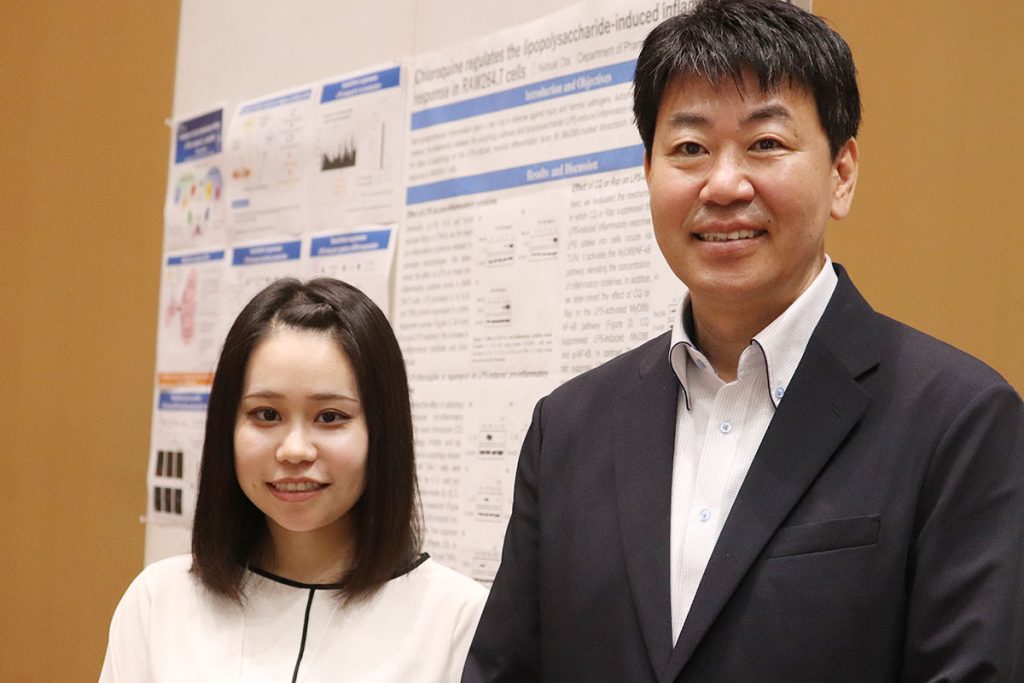
"Rent in Sapporo costs about 50,000 yen. The pharmaceutical sciences program is six years. I worked at a Japanese restaurant off and on, but it impacted my studies. I was running out of savings, so the scholarship has been a great help," Ota explained.
Ota continues to receive funds from her parents and says she is eternally grateful for their ongoing support.
"I want to make a contribution to medical care. That's one way I can give back to my parents," Ota added.
Realizing the Founder's Dream
The history of the Tsukushi Scholarship dates back 25 years. Amino Up launched the foundation in 1999 along with retail businesses dealing in its main product of AHCC® and professors at universities involved in joint research. At the time, it was created as an organization without legal personality.
This meant that donations to the foundation were still taxed. After becoming a non-profit, in 2017, the foundation was converted to a public interest incorporated foundation that is not subject to tax.
The scholars receive a monthly stipend of 100,000 JPY for a period of 21 months. While they are required to give regular progress reports on their research, they have no obligation to pay back any funds.
The first cohort started with eight students. Now the fund supports between 15 to 20 students every year. Twenty scholars were selected this year, bringing the grand total of scholars to date to 400. The total amount of scholarship funds disbursed reached approximately 750 million JPY (roughly 5.4 mil. USD) as of fiscal year 2023.
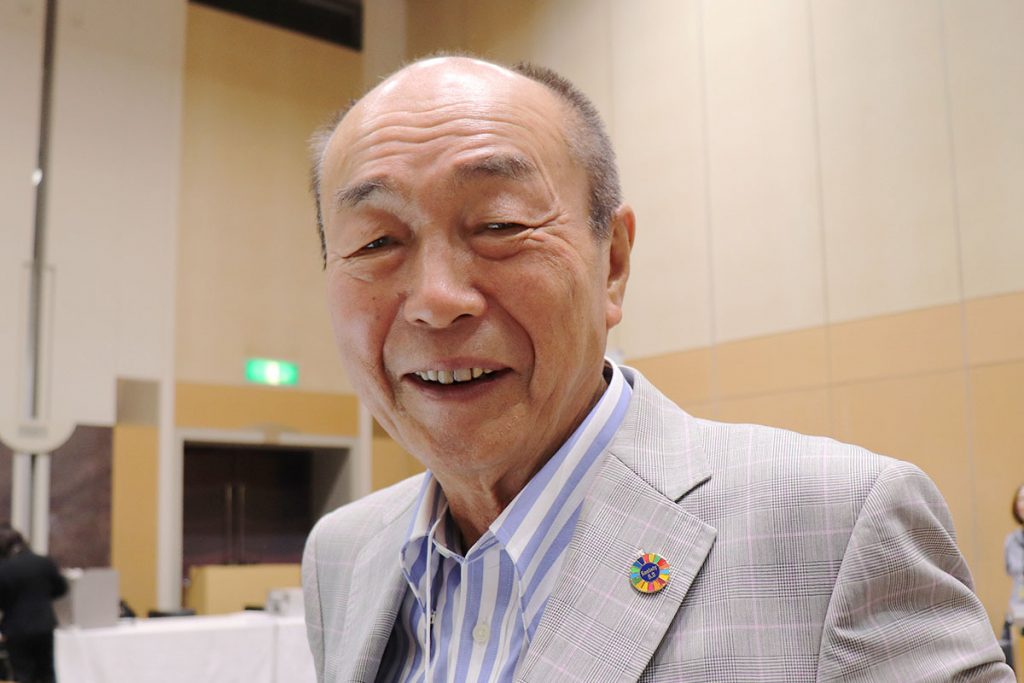
Kenichi Kosuna, chairman and founder of Amino Up explained the dream of the scholarship. "An environment where young people can fully engage in their studies and research supports our nation," he remarked. Kosuna was involved in student activism in his youth. Driven by a desire to change society for the better, he started his own business.
A Scholarship for All Nationalities
The Tsukushi Scholarship does not take citizenship into account. It is open to any student or young researcher in Japan.
Chenfung Lee is a 25-year-old Taiwanese national who grew up in Okinawa. Enrolled in a doctoral program at Hokkaido University, Lee said it was the first time he had applied for a scholarship.
Lee obtained a clinical laboratory technician qualification at the University of the Ryukyus' School of Health Sciences. But fascinated by research, he wanted to further investigate disease mechanisms. He completed a master's program at the same university and then entered the doctoral program at Hokkaido University. Currently, he lives in a dormitory to save on living expenses.
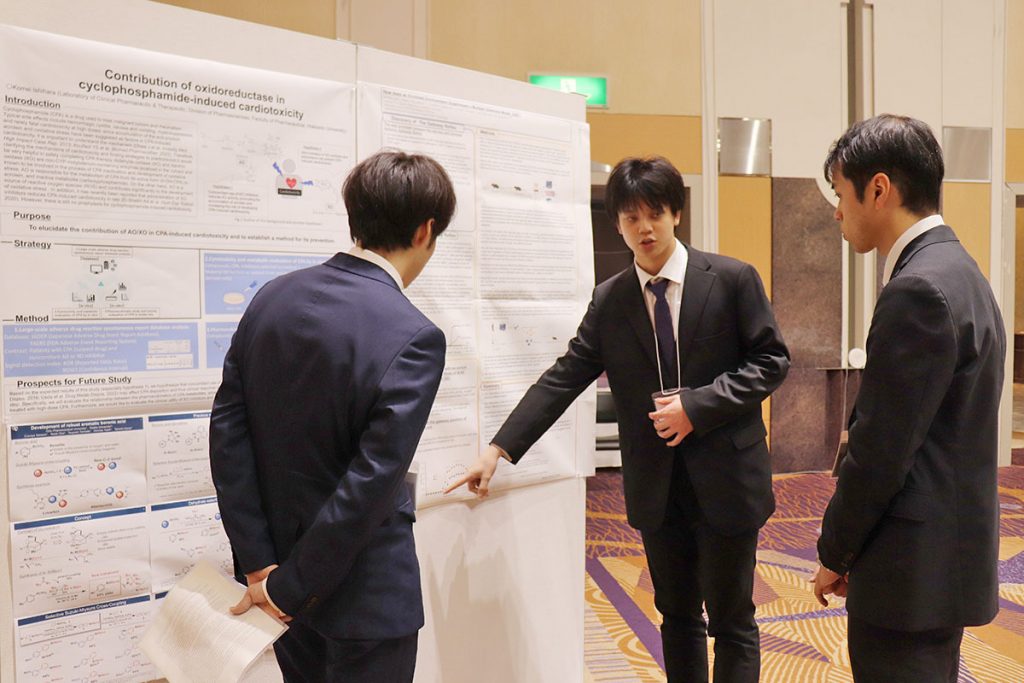
"Public scholarships often require Japanese citizenship. So the Tsukushi Scholarship, which doesn't have such a restriction, was very helpful," Lee explained. "During my undergrad and master's studies, I worked part-time as a tutor. But now given such a great research environment, I want to focus on research," he added.
The very first cohort included an international student from Poland. Since then, 124 of the 400 scholars, or about 30%, have been international students. The largest number comes from China with 86, followed by Indonesia (14), and South Korea (9). Scholars have hailed from 13 countries including Zimbabwe, Sudan, and Egypt.
Support from Former Scholars
Hayato Urushima, Assistant Professor at Osaka Metropolitan University’s School of Medicine, became a scholarship recipient in 2012. "It was just when my first child was born, so the scholarship was truly helpful," he recalled.
Urushima graduated with a degree in veterinary medicine from Tottori University and worked for a time as a veterinarian. When the animal hospital he worked at closed, he took the opportunity to enter graduate program at Osaka University’s Graduate School of Medicine.
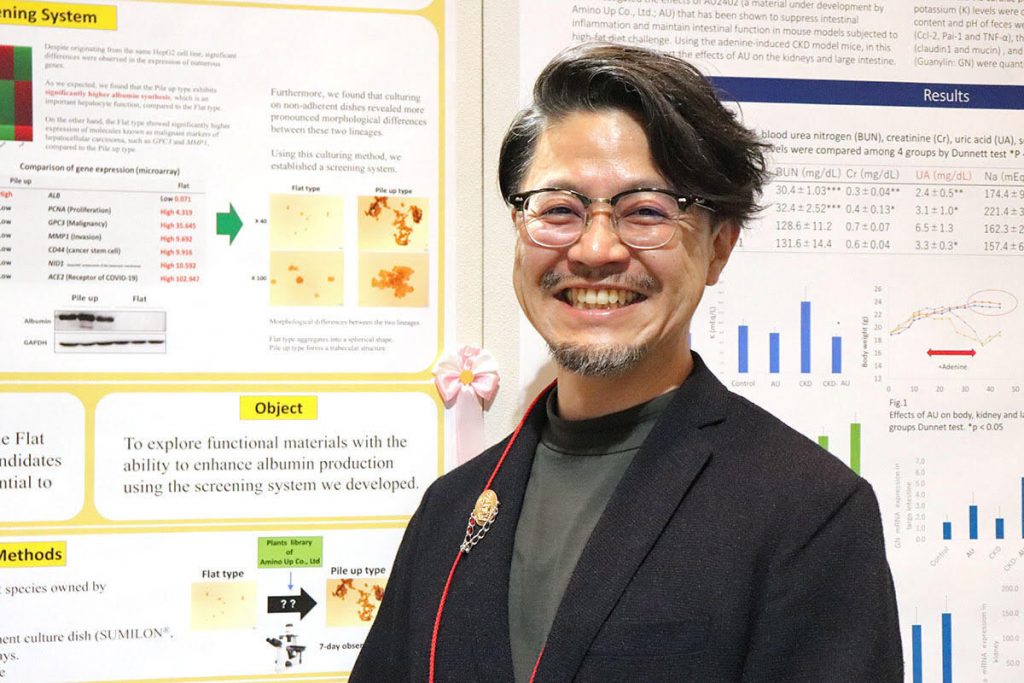
During undergrad, Urushima received a student loan from the Japan Scholarship Foundation (now the Japan Student Services Organization). After graduation, he worked while repaying the loan. But then he became a student again.
"My wife was also working, but with childbirth and childcare, my income from twice-a-week veterinarian work was not enough," Urushima explained.
He reports having fully repaid the student loan two years ago.
One of Urushima's students from China, Qiongya Gu, received the Tsukushi Scholarship in 2022.
Gu shared her experience. "I was planning to supplement my tuition by working night shifts at a convenience store. But thanks to the scholarship, I was able to avoid an overwhelming job and focus on my studies, leading to fulfilling research," she explained with gratitude.
An Investment in the Future
Masuo Hosokawa is a Professor Emeritus at Hokkaido University and the Representative Director of the Tsukushi Scholarship Foundation. "I took on this role because I agree with the foundation's aim to support young researchers," Hosokawa clarified. "I, too, received a scholarship from the Japan Scholarship Foundation during my university years. It was a great help, as I was married at the time," he added.
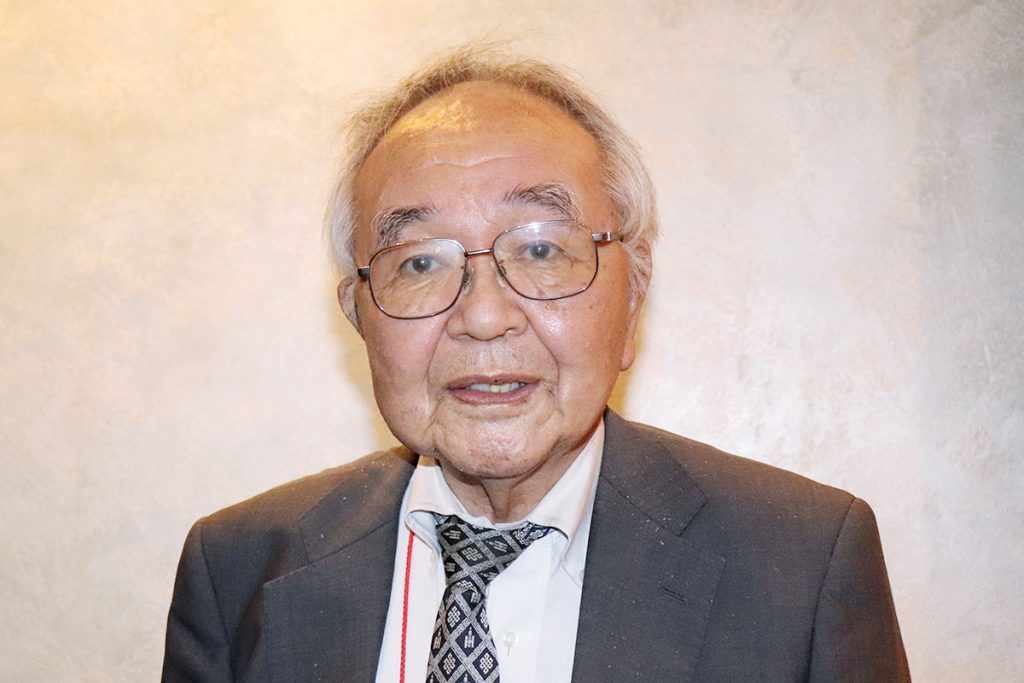
At the time, the Japan Scholarship Foundation had a system where students who pursued a career in teaching after graduation were exempt from repaying their student loans. So Hosokawa was able to avoid repayment.
"The Tsukushi Scholarship is a gift to young researchers who greatly appreciate it. The foundation asks for nothing in return. Scholars can pay us back by enhancing their knowledge and skills for the advancement of medicine and pharmaceutical science," Hosokawa said encouragingly.
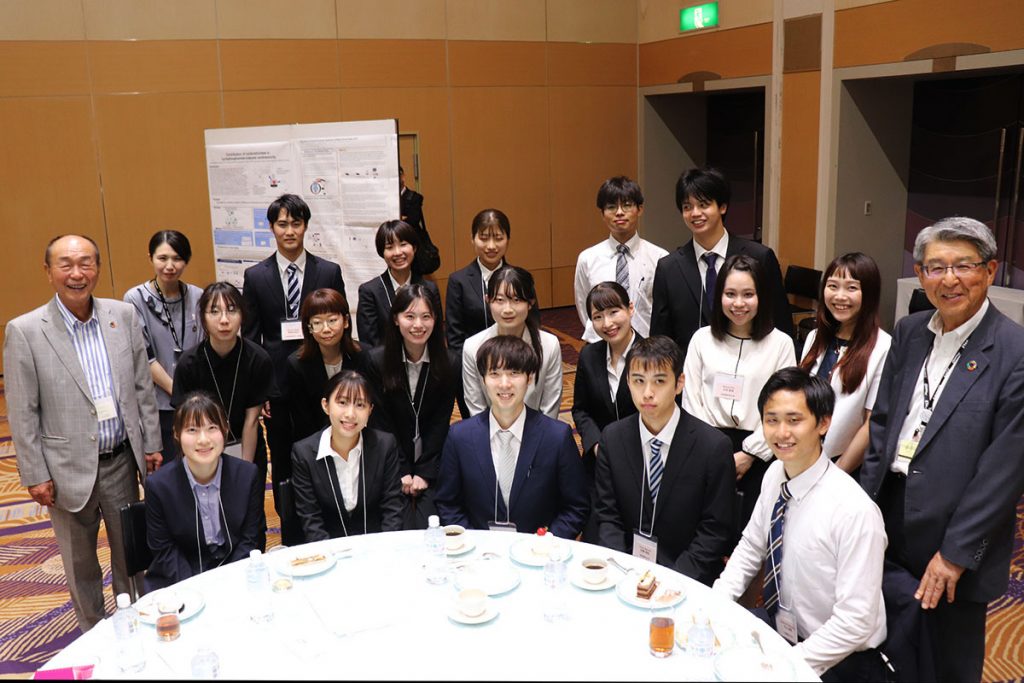
Supporting young researchers is truly an investment in the future.
Amino Up is a logo partner of Japan 2 Earth.
このページを 日本語 で読む








